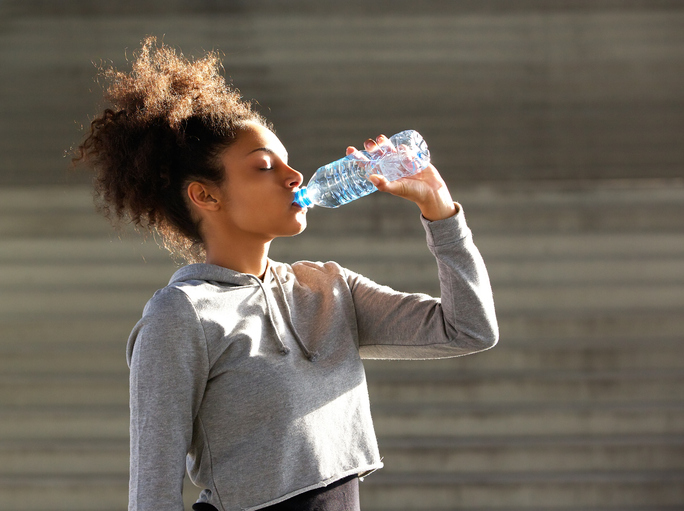As temperatures rise, maintaining proper levels of hydration should be on everyone’s minds.
The symptoms and repercussions of extreme dehydration can be severe. Parents and coaches should monitor players for signs of possible dehydration. These symptoms may include:
- Fatigue
- Dizziness
- Headache
- Muscle cramps
- Thirst
- Dark colored urine
- Dry mouth
In extreme cases, students may show signs of confusion, heavy breathing and rapid heartbeat.
Dehydration Is Avoidable With the Proper Precautions
1. Drink Water Before, During and After Workouts, Games and Practice
One to two hours before beginning any rigorous physical activity, consume 16 to 20 ounces (around two cups) of water. During physical activity, try to drink around six to 12 ounces or one to two cups for every 10 to 15 minutes of activity. To replenish any fluid loss, drink an additional 16 to 24 ounces (about two to three cups) after completing any rigorous workout, game or practice.
2. Choose to Eat Not Drink Your Water by Consuming Water-Rich Foods
Fruits and vegetables often contain high percentages of water while also serving your daily vitamin and mineral needs. For example, watermelon is more than 90 percent water by weight and contains nearly one-third the daily recommended values of vitamin A and C. Other water-rich produce includes carrots, lettuce, citrus, apples and celery.
3. Replenish Electrolytes With a Sports Drink
Not to be confused with energy drinks such as Monster and Redbull, which contain high levels of both caffeine and sugar, sports drinks replenish the body with sodium, potassium and other necessary minerals. Experts recommend consuming these drinks in moderation and only after completing intense physical activities as they may contain as much as 21 grams of sugar per 12 fluid ounce bottle.
While staying hydrated is of major concern, avoid overcorrecting and becoming overhydrated. Overhydration, while rare, can result in hyponatremia or water intoxication. Water intoxication occurs when an individual drinks too much water too fast, causing the amount of sodium in your blood to drop to dangerously low levels. Ironically, overhydration shares similar symptoms to dehydration and heat exhaustion, including nausea, confusion and fatigue.
An individual’s hydration needs largely depend on the type of physical activity they are doing and their health needs. It’s important to be properly hydrated at all times, on and off the field, and for coaches and parents to remain educated and aware.
Hydration Help
If you need help deciphering the symptoms of dehydration or want more tips on staying hydrated, don’t hesitate to call Nurse Now. Our knowledgeable nurses are available 24/7/365 to provide guidance and support to ensure you stay healthy and well-hydrated.

